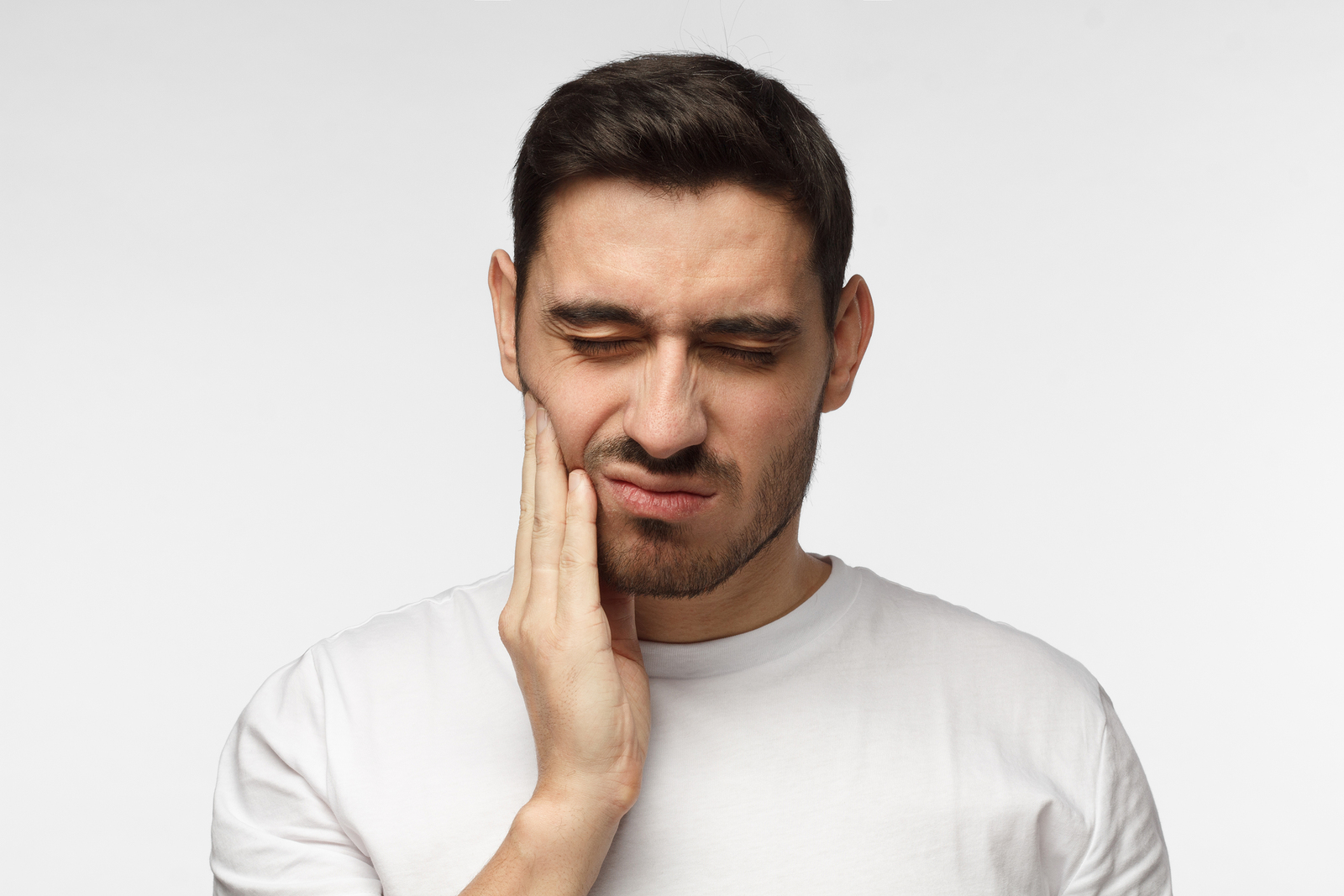September is Pain Awareness Month, and I want to address some of the common causes of tooth pain and sensitivity. There are a few oral health issues I frequently see in my patients that result in pain, but what are the root causes of these? Most conditions that send you to the dentist with a toothache or nerve pain are highly preventable, caused by small things in your everyday life.
Tooth Sensitivity and Cavities. Tooth sensitivity can take all the fun out of eating ice cream or drinking hot chocolate. It’s caused by tiny pores in your teeth becoming exposed. Normally, these pores are sealed with enamel, but if your tooth enamel starts to wear away, the pores open and give a direct line to the nerve of the tooth. These small areas of exposed nerve are what cause sensitivity to certain foods and drinks.
Bacteria can easily get into these exposed pores, which causes cavities over time. That’s all a cavity is﹘ the accumulation of bacteria in the pores of your teeth that causes deterioration.
The Root of the Problem.
Highly Acidic Diet. A big cause of tooth sensitivity and cavities lies in what we consume. The Western diet contains lots of highly acidic foods and drinks. When acid sits on your teeth, it erodes your tooth enamel, exposing the pores underneath. Soda is one of the worst beverages for your teeth. In fact, most things that come in a plastic bottle are extremely acidic, bathing your teeth in corrosive liquid with every sip.
The solution is simple﹘ limit the acidic foods and drinks you consume. The first step for many is to give up that soda that you sip on all day. When you do indulge in acidic foods, be sure to wash them down with filtered water in order to rinse the acid from your teeth. Brushing your teeth immediately after eating acidic food can also cause damage to your enamel, so wait about thirty minutes before brushing.
Bruxism. Bruxism is the term for clenching and grinding your teeth. It’s been estimated that bruxism affects one in three people. This condition can occur while you sleep; therefore, many people are completely unaware that they have it. The harsh nighttime clenching and grinding can wear away at your enamel and even cause teeth to chip or crack. Bruxism can also be the cause of headaches or jaw pain, in addition to causing painful tooth conditions.
The cause of bruxism isn’t as easy to address as simply changing your diet. It’s recommended to lower the stress levels in your life, but that’s hard to do sometimes. Your dentist can fit you for a mouthguard to protect your teeth while you sleep.
The Fluoride Factor. To lessen sensitivity the exposed pores need to be covered and protected again. Fluoride is beneficial for teeth in two ways﹘ it keeps bacteria from accumulating on the surface of teeth, and it helps to rebuild enamel. There are toothpastes specially designed for those with sensitive teeth; these varieties have more fluoride to aid in the healing process.
For my patients with tooth pain and sensitivity, I recommend a fluoride varnish that is actually painted onto the surface of teeth. This allows the fluoride to sit on the teeth and harden, making it more effective and longer lasting. The whole goal of using fluoride is to get it on our teeth frequently and for as long as possible each time.
While toothpaste and fluoride treatments can help fight tooth sensitivity, the problem will persist if the root of the problem is left unaddressed. Talk to your dentist about lifestyle changes you can make to help prevent tooth pain and sensitivity in the future.

